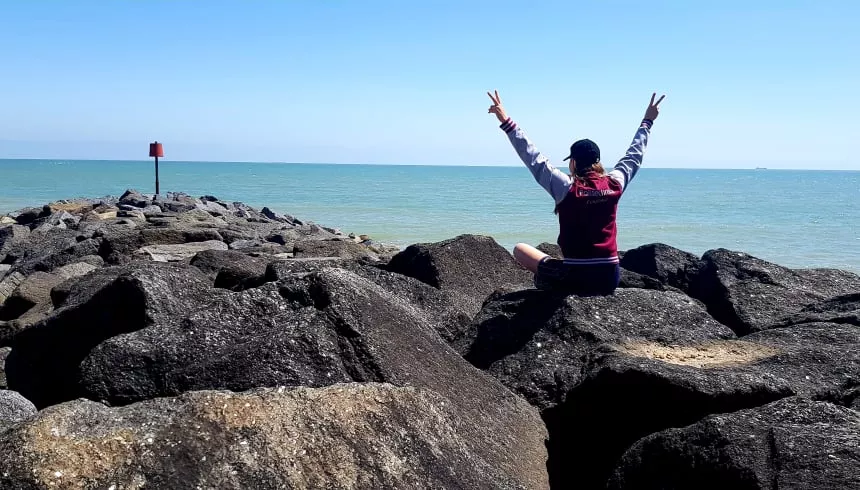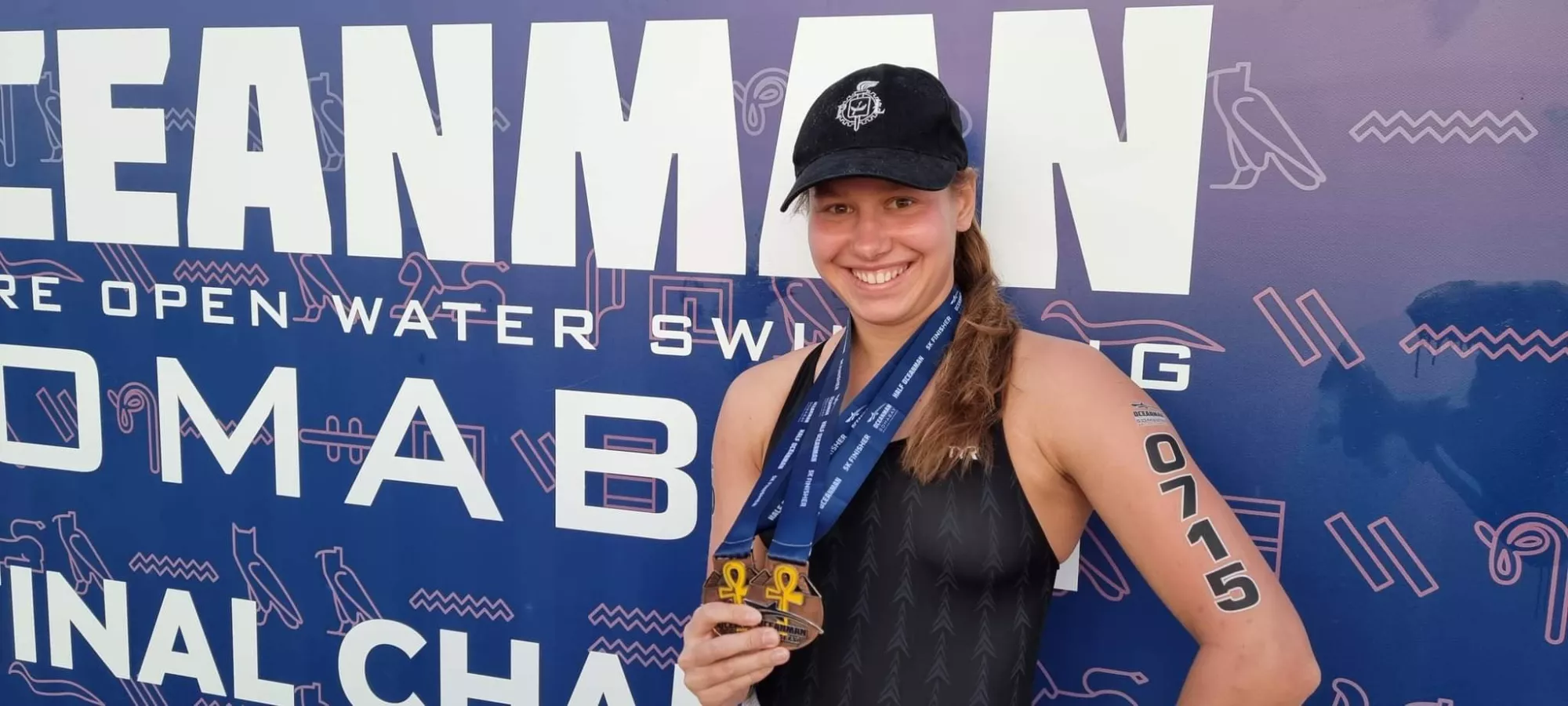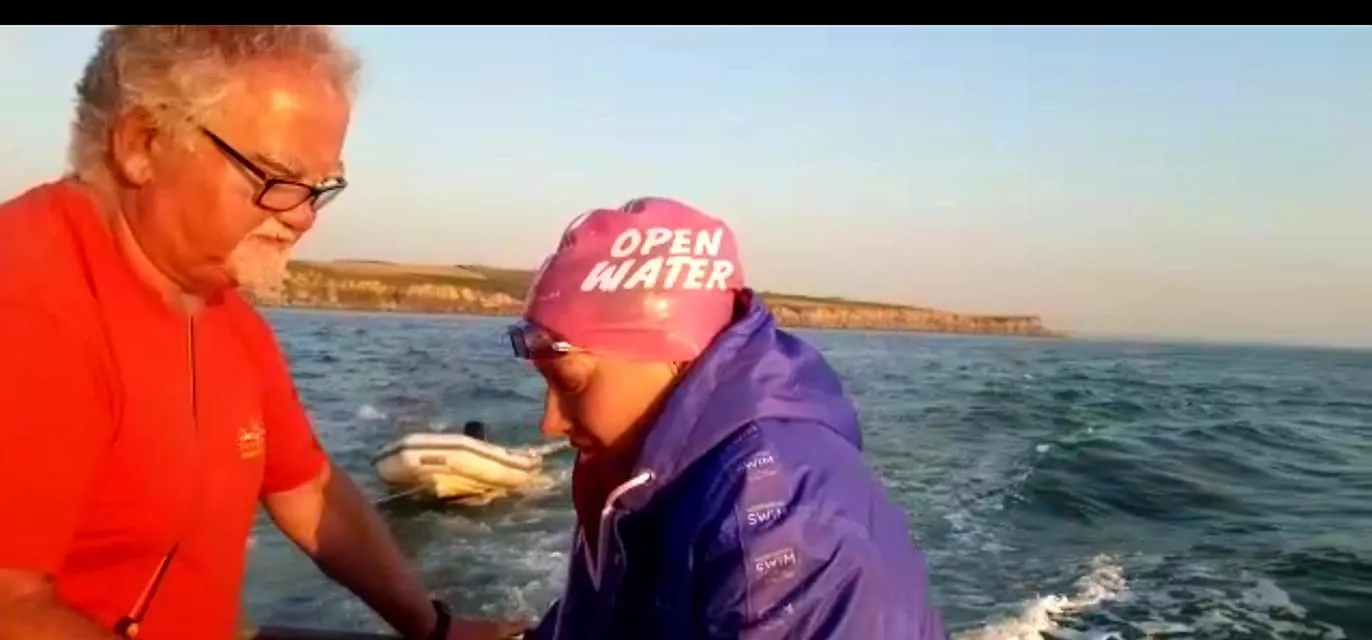Aleksandra Bednarek became the first Polish woman to win the Triple Crown of Open Water Swimming. She swam across the Catalina Channel and the English Channel and circumnavigated the island of Manhattan. She is among a very small group of swimmers in the world who have succeeded. She achieved her athletic success almost simultaneously with the completion of her bachelor's degree at Lodz University of Technology. The biomedical engineering graduate will begin her second-degree studies in this field in October.
Looking from the perspective of a fan at this success, one feels great appreciation. And how do the emotions of a swimmer change during the preparation, the start itself and right after it?
At first, I felt happy and proud that I had come a long, uncertain way and could finally be right in Dover, set foot on the beach and attempt to swim across the English Channel. After about 20 minutes of swimming, the adrenaline began to subside and I began to feel the chill of the water. This thermal discomfort accompanied me until the 10th hour of the swim. All I had ,was a feeling that I didn’t like very much, but which I was able to endure. However, I was aware that everything was fine with me. I think this thought kept my spirits up and prevented me from crossing the dangerous line of hypothermia due to my competitive spirit.
After about 10 hours, I entered a strong current that made it very difficult for me to swim to shore. Then I think I focused on it and thermal discomfort was no longer as important to me as reaching the shores of France.
Whenever doubt arose in my mind or a crisis appeared I tried to push those thoughts away or redirect my attention to something else. These are tools used in meditation, which is what my sports psychologist and I focused on while preparing for this challenge.
Mental training helped you prepare the mind, and how did you work on physical readiness? And what role did Lodz University of Technology play in this process?
When it comes to physical preparation, I trained every day in the pool, swimming sometimes 12 km and sometimes 17 km a day. From early mornings I could be seen in the Sports Bay - a professional sports facility at TUL. I am glad that my university focuses not only on the academic aspects of studying, but also allows students to pursue their passion for sport. Thanks to this, it was possible for me to fulfill my deepest swimming dreams.
This year brought you not only sporting success but also excellent results in completing your undergraduate studies in Biomedical Engineering. What are your future plans in this field?
I derived much joy from this fact. As I mentioned earlier, it was a challenging year for me, and at times, I had doubts about whether I could reconcile everything. My thesis involved investigating the mechanical and biological properties of a material used in tissue engineering, which is part of regenerative medicine, after multiple heat treatments. After defending my thesis, I enrolled in a master's program, also in Biomedical Engineering. Currently, I am working on a similar topic, further expanding my knowledge in the areas of 3D printing and tissue engineering.

What are your next challenges?
For now I need to rest. This has been a very difficult season for me in several respects and I want to let my thoughts run freely through my mind and then plan. However, I have an idea for the winter because I want to prepare for the IWSA World Championships in Russia and IISA in Poland.
Interviewer: Agnieszka Garcarek-Sikorska PhD
Graphics: Filip Podgórski
Photos: Interviewee’s private resources

